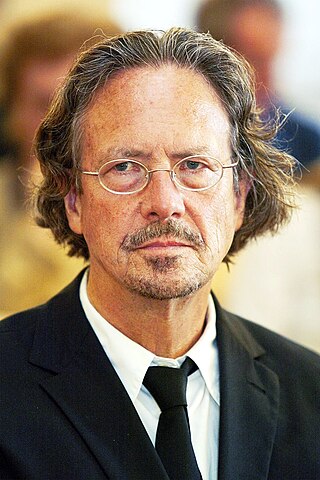
Peter Handke is an Austrian novelist, playwright, translator, poet, film director, and screenwriter. He was awarded the 2019 Nobel Prize in Literature "for an influential work that with linguistic ingenuity has explored the periphery and the specificity of human experience." Handke is considered to be one of the most influential and original German-language writers in the second half of the 20th century.

The Lost Honour of Katharina Blum, or: how violence develops and where it can lead is a 1974 novel by Heinrich Böll.
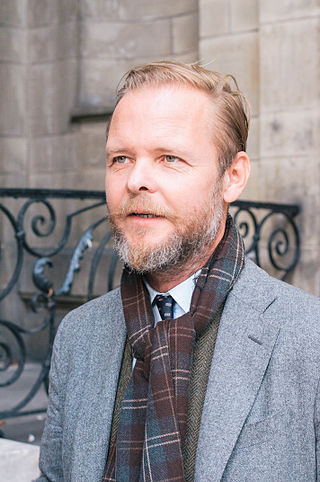
Christian Kracht is a Swiss author. His books have been translated into more than 30 languages.

Saša Stanišić is a Bosnian-German writer. He was born in Višegrad, Bosnia and Herzegovina as the son of a Bosniak mother and a Serbian father. In the spring of 1992, he fled alongside his family to Germany as a refugee of the Bosnian War. Stanišić spent the remainder of his youth in Heidelberg, where his teachers encouraged his passion for writing. After graduating from high school, he enrolled in the University of Heidelberg, graduating with degrees in Slavic studies and German as a second language.
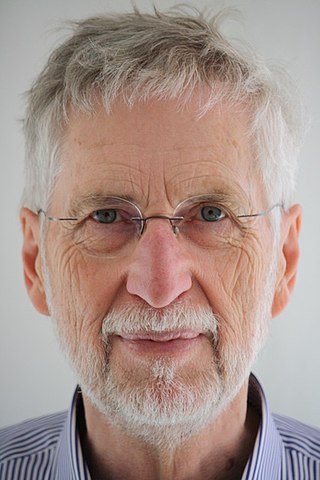
Volker Hage is a retired German journalist, author and literary critic, who has reinvented himself as a novelist.

Vergeltung is the second novel of the writer Gert Ledig (1921-1999). It is an apocalyptic autobiographical anti-war novel. It mines the author's own experiences and is considered an important example of the literary realism genre of postwar novel.

Imperium is a 2012 satiric novel by the Swiss writer Christian Kracht. It recounts the story of August Engelhardt, a German who in the early 20th century founded a religious order in German New Guinea based on nudism and a diet consisting solely of coconuts. The fictionalized narrative is an ironic pastiche.
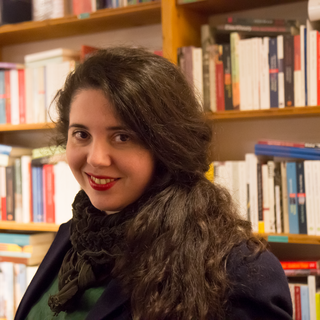
Marjana Michailowna Gaponenko is a German writer born in Odesa, Ukraine.

Couples, Passersby is a 1981 short story collection by the German writer Botho Strauß. It consists of narrative vignettes and aphoristic sequences divided into six sections: "Couples", "Traffic Flow", "Scribbles", "Dimmer", "By Ourselves" and "Idiots of the Immediate".
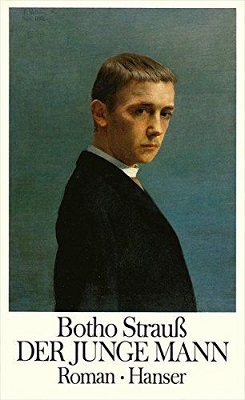
The Young Man is a 1984 novel by the German writer Botho Strauß. It has a frame story about a man who enters the world of theatre, but the book mainly consists of phantasmagorical tales and allegories concerning art, alienation and German identity. An English translation by Roslyn Theobald was published in 1995.

Living Glimmering Lying is a 1994 book by the German writer Botho Strauß. It consists of literary vignettes about alienated people in post-reunification Berlin. The book was published in English in 1999, translated by Roslyn Theobald.

The Moravian Night is a 2008 novel by the Austrian writer Peter Handke. It tells the story of a retired writer who talks about a recent journey and the state of Europe in front of a small crowd on his houseboat, while anchored outside the village Porodin on the river Morava in Serbia.

The Terrors of Ice and Darkness is a 1984 novel by the Austrian writer Christoph Ransmayr. It tells the stories of the 1872–74 Austro-Hungarian North Pole expedition, of a young Italian man who disappeared in 1981 while researching the expedition, and of the narrator, who tries to figure out what happened to the Italian.

Storm Still is a 2010 play by the Austrian writer Peter Handke. The narrator, with traces of Handke himself, looks back at the National Socialist era, when one Slovenian family in Carinthia collaborates with the Germans, while another opposes them.
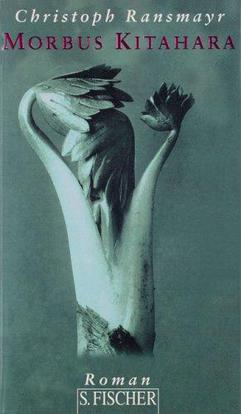
The Dog King is a 1995 novel by the Austrian writer Christoph Ransmayr. Its original title is Morbus Kitahara. A work of alternative history, it is set in Central Europe after World War II and the implementation of the Morgenthau Plan, which has deindustrialized the region and created a ruthless post-apocalyptic-esque society. The main character is the son of a blacksmith who becomes the bodyguard of the only man in the area who owns a car.

A Moment of True Feeling is a 1975 novel by the Austrian writer Peter Handke.

Peter Hamm was a German poet, author, journalist, editor, and literary critic. He wrote several documentaries, including ones about Ingeborg Bachmann and Peter Handke. He wrote for the German weekly newspapers Der Spiegel and Die Zeit, among others. From 1964 to 2002, Hamm worked as contributing editor for culture for the broadcaster Bayerischer Rundfunk. He was also a jury member of literary prizes, and critic for a regular literary club of the Swiss television company Schweizer Fernsehen.
Shigeru Mizuki's Hitler, originally titled Gekiga Hitler, is a manga by Shigeru Mizuki about the life of Adolf Hitler. In 1971 it began serialization in Weekly Manga Sunday. In November 2015, it was published in English by Drawn & Quarterly, translated by Zack Davisson. The English version was a translation of a version in French rather than a direct translation from Japanese.
Tynset is a lyrical work of prose published in 1965 by the German writer Wolfgang Hildesheimer. Often described as a novel, although not by Hildesheimer himself, it is a monologue of the thoughts of an insomniac over the course of a sleepless night. The central theme of Tynset, one of Hildesheimer's major works, is resignation in face of an absurd world. The first-person narrator from Tynset is also found in other works by Hildesheimer, and displays similarities with Hildesheimer himself. The work is named after the Norwegian township Tynset, which the narrator imagines travelling to.
Once Again for Thucydides is a 1990 book of travel literature by the Austrian writer Peter Handke. It describes impressions from different places in the world in 17 short vignettes.

















